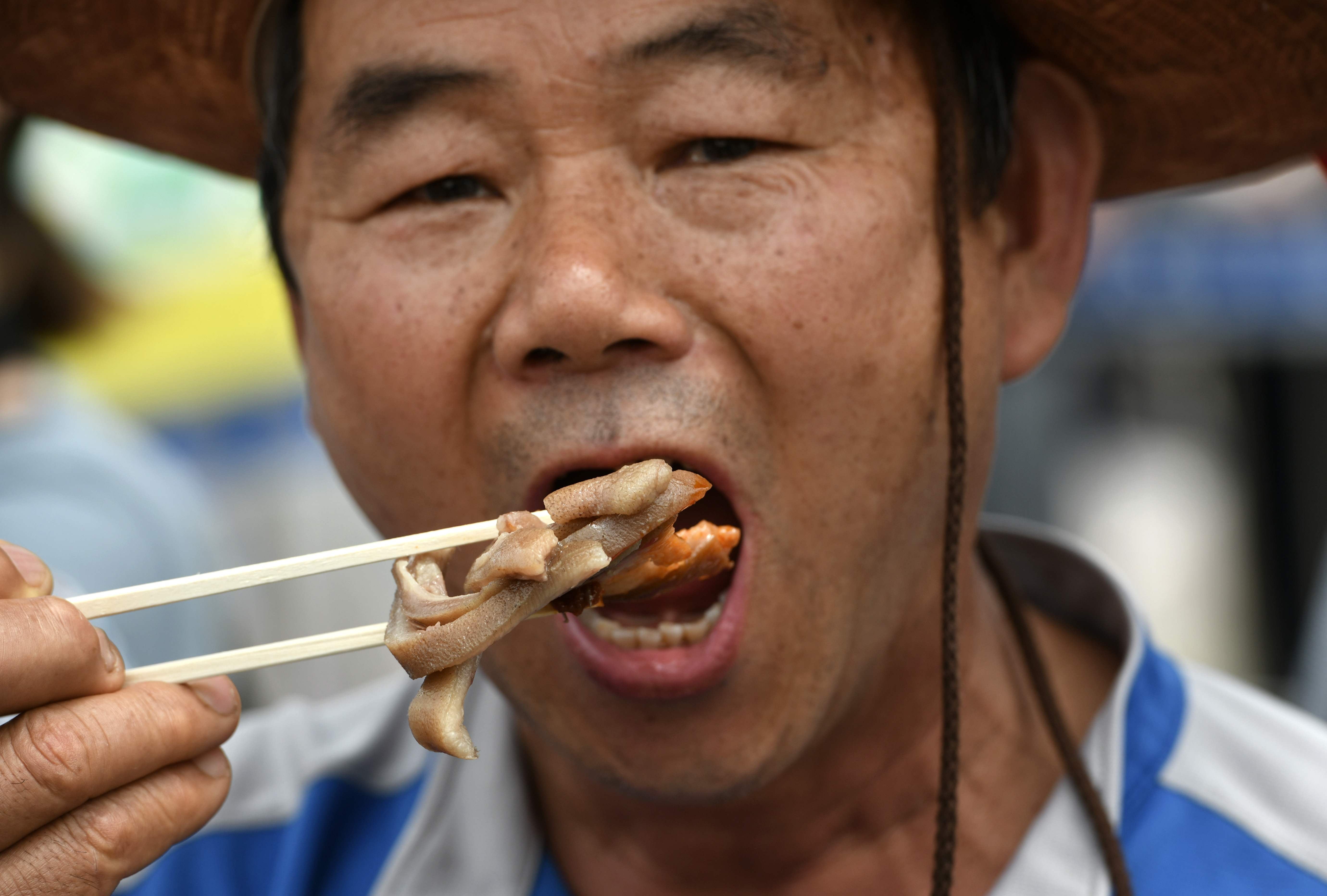Animal rights made big gains in 2023 – here are 10 of the year’s wins
Bowing to international pressure, South Korea announced plans to end its dog meat trade, while Norway closed the last of its fur farms. Elisa Allen rounds up the best ‘good news’ stories about animals from the past 12 months


In many respects, 2023 has been another tough year. From the cost of living crisis to ongoing conflicts in many parts of the world, the challenges of the past 12 months make it even more crucial to celebrate the good news stories – including wins for our fellow animals.
Mouthwatering new vegan food items continued to appear, with Premier Inn serving 2.5 million vegan sausages in a year and Asda selling a vegan “whole roast turkey” for Christmas. But fabulous food aside, there were many other animal victories to cheer about.
From South Korea’s plans to end the dog meat trade to Wales’s ban on selling snares and glue traps, it seems humankind is finally starting to realise that animals are individuals and not ours to cut up for food or clothing, torture in laboratories, confine to cages and tanks for entertainment, or abuse in any other way.
The Moulin Rouge can-canned animal acts
World-famous French cabaret Moulin Rouge announced in May that it would no longer feature any animals in its performances – including the equines exploited for the “little horses” show, a staple of the venue since doors opened in 1889. The move came shortly after the iconic establishment axed python performances, ensuring that only talented humans – who can say “oui” to performing – will grace the famous stage from now on.
Animal testing of ingredients exclusively used in cosmetics ended in the UK
There’s good news for rabbits and other animals used in crude laboratory experiments: tests for ingredients used exclusively in cosmetics are finally over! In May, the government stopped issuing new licences for such tests, and in November, the Home Office confirmed that testing has also ended under all remaining legacy licences.
Travel companies, including Scott Dunn, cut ties with camel rides in Egypt
As a Peta exposé in May confirmed, camels used at tourist attractions such as the Great Pyramid of Giza in Egypt are beaten, prodded, yanked by ropes threaded through the nose, bound at the ankles, and forced to walk on their knees. Irresponsible tourism allows this abuse to continue, so it was cause for celebration when leading luxury travel provider Scott Dunn became the first (though not the last) travel company to stop selling tours and packages involving camels.
Norway’s last remaining fur farms closed, while Lithuania banned fur farming
Fur has long been falling out of favour, as designers and consumers alike opt for faux fur instead. Now, we’re finally seeing the industry shut up shop. Following a ban in 2019, Norway closed its last remaining fur farms in January – two years earlier than planned. Meanwhile, Lithuania passed a law that will see the country’s 40 mink and 30 chinchilla farms close, sparing the lives of the approximately 1 million animals who suffer there before being killed for their fur each year.
Wales banned snare traps
Wildlife in Wales got a much-needed reprieve when the country became the first UK nation to ban hideous, animal-maiming snares. Animals who are caught in these traps – usually foxes and rabbits, but sometimes owls and even dogs and cats – may suffer for days and have even been known to try to chew off their limbs in a desperate attempt to escape.
Spain said adios to wild animal circuses
Circuses have long drawn ire from animal lovers for trucking animals from town to town in tiny trailers and forcing them to perform. This year, Spain became the latest nation to bring down the curtain on animal acts. The new law signals a complete ban on using wild animals in circuses nationally. The law also targets the wild animal trade by restricting the species that can be kept as “pets” in Spain.
The US Navy scrapped decompression tests on sheep
In February – two years ahead of schedule – the University of Wisconsin-Madison cancelled archaic decompression tests on sheep. The tests, widely considered to be “junk science”, saw experimenters literally squeeze the life out of sheep at great expense to the American taxpayer. Now, the pressure is on the US Navy, which funded the tests, and other military branches to stop all experiments on animals.
Kerala temple upgraded to a mechanical elephant
In a move elephants won’t soon forget, Irinjadappilly Sri Krishna Temple in Kerala welcomed a lifelike mechanical elephant with a nadayiruthal ceremony, a tradition during which an elephant is offered to the gods. The pachyderm proxy was donated to the temple by Peta India in exchange for a commitment to never using real elephants, enabling it to conduct safe, cruelty-free ceremonies while sparing real elephants the horror of captivity.
Anheuser-Busch stopped amputating tailbones of Budweiser Clydesdales
Horses need their tails to balance, swat biting insects, and communicate – among other things. And happily, in September, the voices of hundreds of thousands of Peta supporters worldwide were heard when Anheuser-Busch InBev, parent company of American beer brand Budweiser, committed to no longer docking the sensitive tails of the Clydesdale horses used in the company’s commercials and other marketing materials.
South Korea moved to ban dog meat trade
After years of national and international pressure, South Korea finally proposed a ban that would spare millions of dogs the agony of being caged, bludgeoned, stabbed, hanged or electrocuted for a fleeting moment of taste. It’s about time that this practice was overturned because dogs – like all animals – should be seen for the living, feeling beings they are and not as an ingredient in someone’s meal.
Elisa Allen is vice-president of programmes at Peta

Join our commenting forum
Join thought-provoking conversations, follow other Independent readers and see their replies